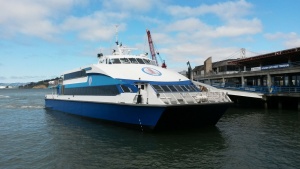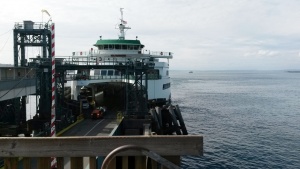Ferry
Ferry provides transportation across waterways (sea, bay, rivers) where land transportation is not available or where an alternative to congested land routes is needed.
Contents
Key ferry serving regions
Types of ferry
Water taxi
Water taxis use smaller vessels to provide short distance service along the waterfront or a stretch of river. There's no clear definition between water taxis vs conventional passenger ferries since some "water taxi" operations use same size vessels as some "passenger ferries".
Conventional ferry
Conventional ferries use monohull boats with top speed of around 20 mph.
Fast ferry
Fast ferries use catamaran or hydrofoil boats with top speed of around 40 mph and are used for longer distance services.
Vehicle or auto ferry
Ferry vessels that carry automobiles act as a road link for areas with no or limited road access, which include islands with no bridges or tunnels to the mainland, or across straits and rivers where the nearest bridge or tunnel is too far away. Many of the auto ferry routes have a highway number designation. Large vehicle ferries have a dedicated boarding area and deck for walk-on passengers. Small vehicle ferries take walk-on passengers and those with bikes by standing or sitting next to cars.


